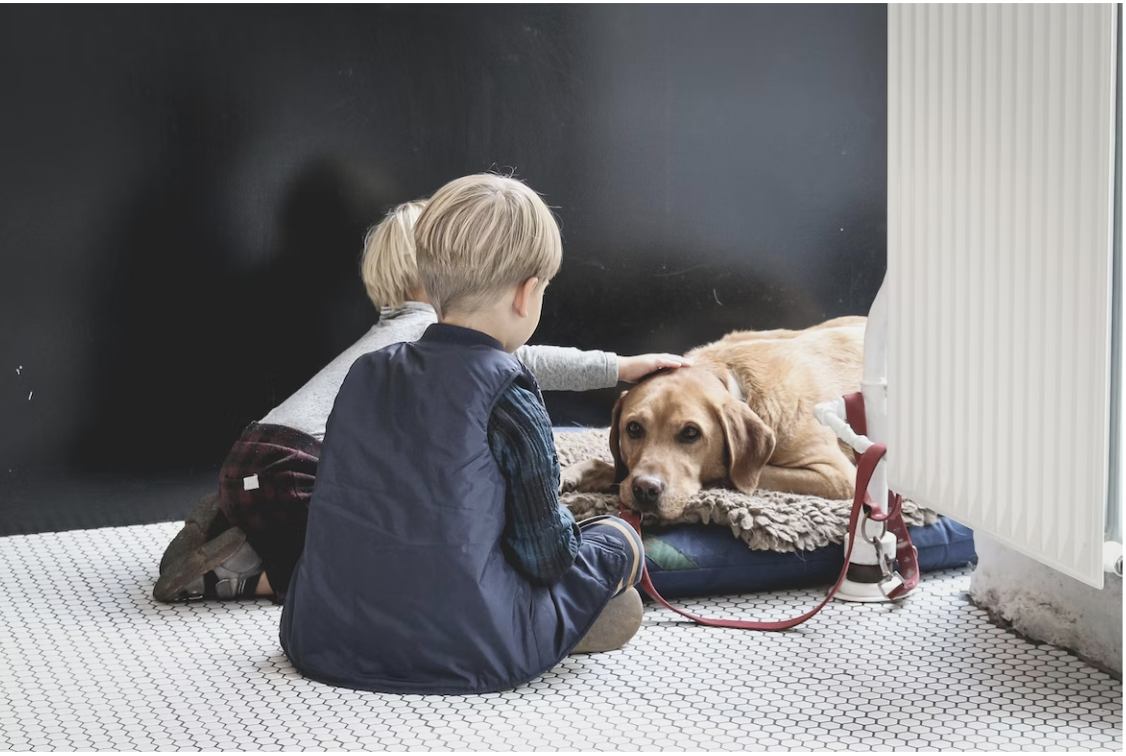Factors to Consider When Choosing a Pet Dog for Your Kids

Bringing a pet dog into your family can be an incredibly rewarding experience, especially for children. Dogs offer companionship, teach responsibility, and provide endless love and affection. However, it's important to carefully consider several factors before choosing a pet dog for your kids. In this blog, we will explore the key factors to consider when selecting dog breeds for kids.
Research and Consultation
Thorough research is crucial when choosing a pet dog for your kids. Take the time to research different breeds, their characteristics, and their suitability for families with children. Look for reputable sources of information, such as breed-specific books and professional dog trainers. You can also view website or blog content about dog breeds or pet dog selection tips. Additionally, consult with veterinarians or experienced dog owners to get insights and guidance on selecting the right breed for your family.
Size and Energy Level
One of the first factors to consider is the size and energy level of the dog. Matching the dog's size with the child's ability to handle and care for it is crucial. Small and medium-sized breeds are often more manageable for young children. Additionally, consider the energy level of the dog. Some breeds are highly energetic and require plenty of exercise and mental stimulation. If your child is active and enjoys outdoor activities, a dog with a similar energy level may be a good fit.
Temperament and Personality
The temperament and personality of the dog are vital considerations when choosing a pet for your kids. Look for breeds known for being friendly, patient, and good with children. Labrador Retrievers, Golden Retrievers, and Beagles are breeds that are often gentle and tolerant. However, remember that individual dogs within a breed can have different temperaments, so spending time with the specific dog you're considering is important.
Allergies and Shedding
If anyone in your family has allergies, it's crucial to consider hypoallergenic dog breeds. These breeds produce fewer allergens and are less likely to trigger allergic reactions. Breeds such as the Poodle, Bichon Frise, and Portuguese Water Dog are known for their hypoallergenic qualities. Additionally, consider the shedding level of the breed. Some dogs shed more than others, and excessive shedding can be challenging to manage, especially if family members have allergies or are concerned about cleanliness.
Trainability and Intelligence
The trainability and intelligence of a dog are essential factors to consider, especially when children are involved. Look for breeds that are known to be easy to train and adaptable. These breeds are more likely to respond well to commands and learn quickly. Border Collies, Poodles, and German Shepherds are highly trainable and intelligent breeds. A well-trained dog ensures a safer environment for your children and enhances the bond between them and the dog.
Exercise and Activity Needs
Consider the exercise and activity requirements of the dog breed you're considering. Some breeds require extensive exercise and mental stimulation to be happy and well-behaved. A high-energy breed may be a good fit if your family leads an active lifestyle and enjoys regular outdoor activities. On the other hand, if your family prefers a more relaxed pace or has limited outdoor space, a dog with lower exercise requirements may be a better choice.
Lifespan and Long-Term Commitment
Before bringing a dog into your family, it's important to consider the lifespan and long-term commitment required. Dogs can live for many years, so be prepared for a long-term commitment when adopting a pet. Discuss the responsibilities of pet ownership with your children and ensure they understand the commitment involved in providing proper care, attention, and love throughout the dog's life.
Safety and Compatibility
Ensuring the safety of your children is paramount when selecting a pet dog. Assess the dog's behavior around children and inquire about its history with families. Some breeds naturally have a gentle disposition and are known for their good interactions with children. However, even with child-friendly breeds, it's important to supervise interactions between dogs and young children to prevent any accidental injuries.
Additionally, consider the dog's compatibility with other pets in your household, if applicable. If you have existing pets, introduce them to the potential new dog in a controlled environment to ensure they get along well.
Time and Financial Considerations
Considering the time and financial commitments associated with owning a dog is essential. Dogs require time for grooming, exercise, training, and overall care. Ensure you have the time available to meet these needs and properly pay for your pet. Additionally, consider the financial responsibilities, including food, veterinary care, grooming, toys, and supplies. Budgeting for these expenses is essential to ensure your pet's well-being and avoid any financial strain on your family.

Choosing a pet dog for your kids is a significant decision that requires careful consideration. By considering factors such as size, energy level, temperament, allergies, trainability, exercise needs, and long-term commitment, you can find a dog breed that is a perfect fit for your family. Remember, each dog is an individual, so spending time with the specific dog you're considering is important to ensure compatibility. By selecting the right dog breed, you can provide your children with a loyal and loving companion that will bring joy and enrich their lives for years.






